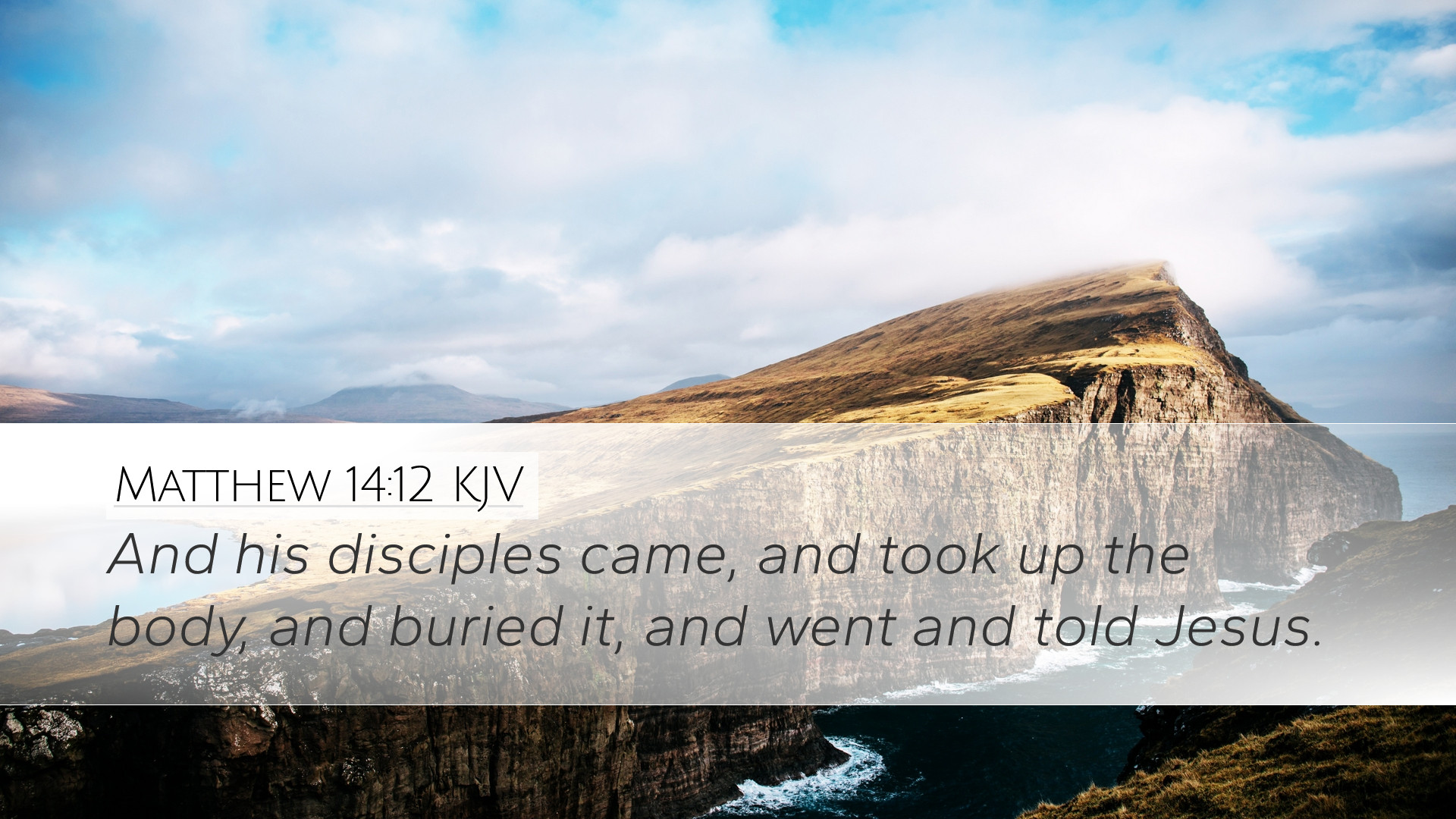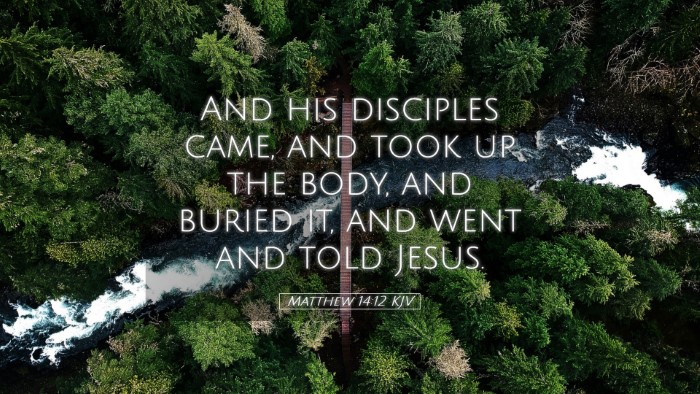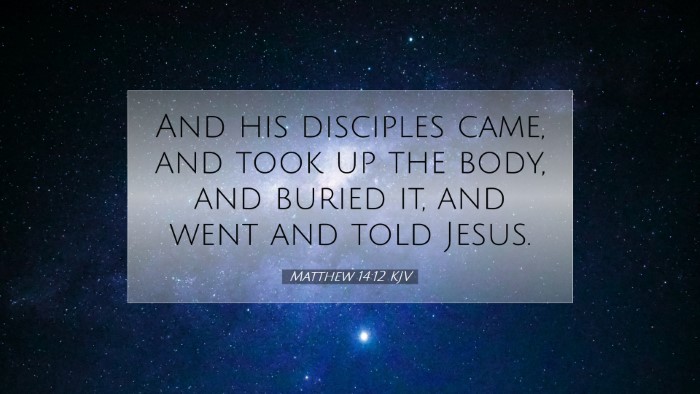Commentary on Matthew 14:12
Matthew 14:12 states: "And his disciples came, and took up the body, and buried it, and went and told Jesus." This poignant verse reflects the aftermath of John the Baptist's martyrdom and offers rich insights into themes of discipleship, ministry, and the gravity of prophetic witness. The lives of Jesus and John the Baptist converge in this moment, illustrating the impact of righteousness in a world often hostile to God’s prophets.
Contextual Overview
The preceding verses narrate the tragic murder of John the Baptist at the hands of Herod Antipas. According to Matthew Henry, John’s execution serves as a stark contrast to the righteousness he embodied. Henry notes that John’s demise is emblematic of the fate that often befalls those who boldly proclaim the truth, particularly in an age of moral depravity.
Insights from Public Domain Commentaries
Matthew Henry's Commentary
Matthew Henry emphasizes the profound grief experienced by John's disciples. He notes that they not only mourn but also fulfill the honorable duty of burying their teacher. This act of burial signifies respect and the closure of John’s earthly ministry. Furthermore, Henry elaborates on the significance of the disciples' actions: they understood the weight of their allegiance and were compelled to honor John's life through diligent remembrance.
Albert Barnes' Notes
Barnes provides additional context by highlighting the theological implications of this passage. He remarks that the disciples’ actions (taking up the body and burying it) display a deep commitment to John’s legacy and the message he preached. His death serves as a foreshadowing of the suffering that Jesus would later endure. Barnes suggests that the disciples' urgent report to Jesus indicates their need for support and guidance, reinforcing the necessity of divine connection amid tragedy and loss.
Adam Clarke's Commentary
Clarke offers a practical perspective on the significance of the narrative. He suggests that the disciples' decision to inform Jesus of John's death reveals their understanding of Jesus as the Messiah, the one who judges and provides solace. Clarke notes the emphasis on action; the disciples did not merely grieve— they acted in a manner that reflects the command of Christ to honor the past while remaining committed to the forward mission.
Theological Reflections
As we reflect on Matthew 14:12, several theological themes emerge:
- Discipleship and Loyalty: The fidelity of John’s disciples in taking care of his body underscores the commitment required of followers of Christ. Their actions beckon the leaders and members of the Church to honor the legacy of past servants of God while continuing to adhere to the principles of faith.
- The Mortality of God’s Servants: This verse reminds us of the transient nature of earthly life, especially for those dedicated to the ministry. Both John and Jesus faced persecution and death, which serves to encourage contemporary believers that suffering is often a part of the faith journey.
- Communal Grieving and Support: The solidarity displayed by John's disciples emphasizes the importance of community in times of loss. In grieving together, they demonstrate the cruciality of fellowship among believers, especially when processing the ramifications of loss.
Application for Modern Readers
For pastors, students, and scholars, Matthew 14:12 presents profound opportunities for discipleship reflection and ecclesiastical relevance:
- Honor Legacy: As stewards of the Christian faith, it is imperative to honor and teach about the sacrifices made by those who came before us, including martyrs and missionaries.
- Engage with Grief: Churches must foster environments where grief is acknowledged and supported. Providing spaces for communal mourning can lead to healing and resilience.
- Stay Connected to Christ: Like the disciples who sought out Jesus after John's death, believers are called to seek Jesus during times of distress and uncertainty.
Conclusion
In conclusion, Matthew 14:12 is more than a historical recounting; it is a call to reflect upon the themes of loyalty, grief, and the continuity of Christ’s mission through His disciples. The insights from public domain commentaries deepen our understanding of this pivotal moment in Scripture, leaving us with a somber yet hopeful reminder of our collective call to endure in faith despite trials.


